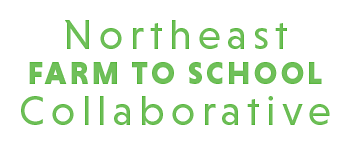Maine
The Dos & Don’ts of Food Based Education
Wondering about the dos and don’ts of food based education?
The Maine Farm to School Network Equity Subcommittee—made up of folks from many organizations within the network including Maine Agriculture in the Classroom, FoodCorps Maine, and Cultivating Community— had been meeting for several years to, among other things, explore how they could reduce unintentional harm in food education.
They knew that farm to school and harvest of the month materials were white-centered, and their state’s farm to school community was looking for tools to support them in being more inclusive of a diverse set of backgrounds and experiences.
The result: a tool that distilled years of food and garden educator experience into one guide, Equity in Farm to School: Dos and Don’ts of Food Based Education, intended to support anyone teaching, designing curriculum, or creating materials in the food education space.
For additional equity support while creating this tool, the Equity Committee utilized grant funding to engage David Patrick and Desiree Vargas of Equity Consulting & Education Firm to advise the project—an important element of creating the tool because the Committee was not racially diverse and lacked important perspectives.
Feedback the Equity Committee heard when sharing the tool:
“I'm feeling inspired to keep questioning and exploring when uncomfortable or difficult situations come up, and committing to approaching those involved (including myself) with compassion.”
“The do/don’t document will be referenced a lot!”
“Feeling empowered and looking forward to focusing energy on supporting and improving do's and ensuring I bring positive energy to deal with don'ts”
The Tool in Action: Collaboratively Creating a New Farm to School Resource
The Maine Farm to School Network (MFSN) put this newly available resource to use in the creation of Wabanaki Foods in Maine Schools: Wild Leafy Greens and training videos for school nutrition staff.
MFSN’s Steph Cesario and former farm to school coordinator, Robin Kerber, of Maine Department of Education Child Nutrition collaborated with and compensated Wabanki Food Expert Mikhu Paul to create these resources.
This partnership serves as an example of how folks can use the tool when creating new resources:
The tool says “Please don’t tokenize Indigenous growing.”
To tokenize is to make something only symbolic without deeper relationships or commitments. Throughout the process of creating these materials, Steph and Robin worked against tokenism by moving at the speed of relationships throughout this project and being open to where the project could lead.
The tool says “Please don’t erase Indigenous knowledge from gardening, agriculture, and land stewardship.”
The Wabanki foods resource showcases Mikhu’s personal and community stories and recipes, and describes Wabanaki harvesting practices to increase public understanding of Indigenous culture and Indigenous knowledge about foraging and land stewardship. The resource is intended to be used in conjunction with the Harvest of the Month Program.
This is a beginning and start, in it’s current form, the resource doesn’t get at the accompanying ‘do’: “Please do acknowledge the history and current impacts of colonization, genocide, and land theft which have attempted to erase Indigenous food ways and agriculture practices.” This is an element that could be added into lessons through additional resources and discussion.
Additional Resources
Explore the Equity in Farm to School Resource Packet
Explore more toolkits on the Maine Farm & Sea to School website
Questions? For more information about this project, please contact FoodCorps Maine Program Coordinator Malia Demers at malia.demers@foodcorps.org.
← Back to the Harvest of the Month & Inclusivity landing page


